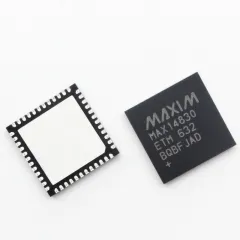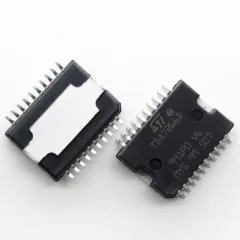On October 16, Lenovo announced a series of AI products, technologies, and solutions including the personal intelligent agent AI NOW at Tech World 2024.
As one of the most important manufacturers in the global PC industry, Lenovo has maintained long-term close cooperation with the chip industry chain represented by AMD, Intel, and Qualcomm.
At this event, Intel CEO Pat Gelsinger, AMD chairman and CEO Lisa Su, and Nvidia founder and CEO Jensen Huang all came to "show support" and announced important cooperation agreements on the spot.
Among them, Intel and AMD announced the establishment of the X86 development ecosystem alliance to jointly face the increasingly powerful challenge of the ARM camp. Nvidia and Lenovo announced a strategic cooperation in the area of hybrid artificial intelligence advantages.
The development of AI is having an increasingly profound impact on the traditional PC market power structure. The well-known "Win-Tel" alliance has become a thing of the past. Windows on ARM has become an emerging force that cannot be ignored, and major chip giants are competing more fiercely for manufacturers represented by Lenovo.
At Lenovo's conference, Yang Yuanqing bluntly stated that "AI is not a bubble." It is affecting the entire IT industry. And the gathering of the "big three" this time may only be the beginning.
Intel and AMD's rare alliance
At the conference site, unexpectedly to everyone outside, Intel and AMD, these two long-term competitors, jointly announced an important cooperation plan.
Intel and AMD will officially form the X86 Ecosystem Advisory Group, aiming to simplify software development, ensure interoperability and interface consistency, and provide developers with standard architecture tools, instruction sets, and development directions.
"Some people say, is the X86 era over?" Pat Gelsinger said at the scene: "I want to tell you that we are still alive and doing very well."
Gelsinger said that the X86 architecture has been the basic architecture of the computing industry for the past few decades and is currently experiencing a period of customization, expansion, and scalability. This is also one of the most important innovation moments of the X86 architecture.
Lenovo has joined this group as a founding member. "Dr. Lisa Su and I think now is the best (cooperation) time. Announce this matter at Lenovo's event and invite other companies to join this group together with Intel, AMD, and Lenovo," Gelsinger said.

Dr. Lisa Su responded by saying that the establishment of this group proves the unique characteristics of the technology field in today's era. AMD and Intel's efforts are aimed at accelerating the development of computing power and promoting the widespread application of computing technology.
In the era of AI PCs, due to the advantages in processor energy efficiency, the ARM architecture is threatening the traditional share of the X86 architecture in the PC market. Whether it is the launch of Apple's self-developed chips or the boost of Qualcomm's Snapdragon X Elite series platform to the ARM camp, it has made the previously lackluster Windows on ARM ecosystem start to regain vitality.
And this cooperation between Intel and AMD also officially announces that the X86 camp will directly face the challenge of the ARM camp in the future.
Jensen Huang strongly supports the hybrid AI strategy
At today's conference, Lenovo announced a strategic cooperation with Nvidia on the Lenovo Hybrid AI Advantage with NVIDIA.
In this cooperation, Lenovo's full-stack capabilities and AI library will be combined with Nvidia's AI software, accelerated computing, and networking to enable enterprise customers to more efficiently transform data into business results, accelerate AI implementation and obtain a higher return on investment (ROI).
Jensen Huang said that Nvidia and Lenovo have experienced several computer revolutions together. Now both sides are doing their best to reshape the computer industry, including the entire technology stack.
"Mark Zuckerberg just mentioned the large model Llama 3. It really changes the game rules." Jensen Huang believes that because of the emergence of Llama 3, every company now has the opportunity to access AI as long as they have the required infrastructure and architecture.
What used to be coding is now machine learning, and the two are very different in nature. Coding is designed to run on CPUs. It creates software and promotes the formation of a huge industry. While machine learning is designed to run on GPUs and is creating artificial intelligence.

With AI computers and AI infrastructure, as well as a very critical software stack, any enterprise can transform a large model into artificial intelligence.
"This will be the largest industrial revolution we have ever seen," Jensen Huang said. The artificial intelligence industry was created by the industry after a long time. It is extremely complex. Above the computer in the future is a large language model, which may be the new operating system for artificial intelligence work.
In the early stage of the new computer revolution, "the best choice that manufacturers can make is to speed up the roadmap," Jensen Huang said. When the performance is increased by 2 times, 3 times or even more, "we can effectively reduce AI costs and energy consumption while increasing AI's revenue-generating ability."
AI intelligent agents become the first step to promoting AI implementation
Lenovo's personal intelligent agent AI NOW, which was released globally today, is Lenovo's AI entry point on personal computers, focusing on an open artificial intelligence application ecosystem. In the Chinese market, this service is named Lenovo Xiaotian.
Luca Rossi, president of Lenovo's IDG (Intelligent Devices Group), told media such as Jiemian News in an interview that this service has achieved successful performance in the Chinese market, which is reflected in both daily active users and monthly active users. Now, this service will also be officially launched to the global market in the form of AI NOW.
Lenovo regards this service as an important difference from products of other PC manufacturers in the market.
Lenovo's product leader at the scene told Jiemian News that AI NOW integrates Meta Llama 3's local large language model and provides fast and safe edge-side processing capabilities. That is to say, users do not need to use any cloud services and can complete content generation and document management locally.
Lenovo said that unlike many products on the market that are labeled as AI PCs, AI Now supports natural language interaction and can perform heterogeneous computing.
Another advantage of AI NOW lies in its data security framework (data security framework), which supports local encryption and can comprehensively control data through the personal knowledge base on the device to ensure privacy and data security.
In addition, Satya Nadella, chairman and CEO of Microsoft, also said that Microsoft and Lenovo are working together to integrate Azure AI's content security features into Lenovo's personal AI intelligent agent to assist in detecting and intercepting potential risks, threats, and quality issues.
Meta founder and CEO Mark Zuckerberg said in a live video that an important reason for Meta to open source Llama is that companies like Lenovo can fine-tune large language models and optimize their performance in specific usage scenarios.
Not long ago, Meta also released the first open source multimodal model Llama 3.2 and has 1 billion and 3 billion parameter models with smaller scales and optimized specifically for running on end devices.
Zuckerberg said that open source models are currently the most cost-effective, have the best customization effect, and have the best performance. "Llama is becoming the industry standard in the field of AI, just like the position of Linux in the operating system."
Lenovo has always regarded the capabilities of local edge-side models as an important factor in differentiating AI PC products. And at today's conference, Lenovo further magnified the role of edge-side models and regarded the AI NOW personal intelligent agent running on it as the first stage for users to achieve personal AI.
WLS hot-sale chips



 MAX14830ETM TDA7266D CD4030BE AD7606BST
MAX14830ETM TDA7266D CD4030BE AD7606BST 





 Microchip PIC16F15323-I/SL - Microcontrollers
Microchip PIC16F15323-I/SL - Microcontrollers
 Microchip PIC18F2321-I/SS Microcontroller
Microchip PIC18F2321-I/SS Microcontroller
 ONSemi RURG3060CC - Rectifier Diodes
ONSemi RURG3060CC - Rectifier Diodes
 SN74LV8153N Texas Instruments - Shift Registers
SN74LV8153N Texas Instruments - Shift Registers